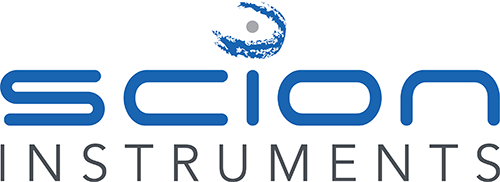Mass Spectrometry: Single Quadrupole versus a Triple Quadrupole
SQ vs a TQ – how to choose ?
Single Quadrupole (SQ) and Triple Quadrupole (TQ) mass spectrometers are both powerful tools used for analytical chemistry. To help you decide how to invest your analytical budget, lets look at the different types of applications they are each suited for:
Single Quadrupole (SQ) Mass Spectrometer
Applications:
Qualitative Analysis:
General Screening: SQ systems are commonly used for the initial identification of compounds in complex mixtures. They are excellent for broad-range screening of samples to determine what substances are present.
Routine Analysis: Ideal for routine analysis where high specificity and sensitivity are not as critical. For example, monitoring known contaminants in environmental samples or quality control in manufacturing processes.
Quantitative Analysis:
Simple Quantitation: Used in situations where you need to quantify known compounds in a sample but do not require the advanced sensitivity and specificity offered by a TQ system.
Single Ion Monitoring (SIM): For quantifying specific ions in a sample, SQ instruments can provide reliable results for well-characterized analytes.
Research and Development:
Basic R&D Applications: SQ systems are suitable for general R&D applications, such as studying reaction mechanisms, where ultra-low detection limits are not necessary.
Environmental Monitoring:
Monitoring Known Pollutants: Used for detecting and quantifying known environmental pollutants, such as volatile organic compounds (VOCs) in air and water samples.
Pharmaceutical Testing:
Drug Development: Useful in early-stage pharmaceutical testing where rapid screening and quantitation of drug candidates are required.
Triple Quadrupole (TQ) Mass Spectrometer
Applications:
Targeted Quantitative Analysis:
Multiple Reaction Monitoring (MRM): TQ systems are the gold standard for highly sensitive and selective quantitation of target compounds. MRM allows for the detection of multiple specific transitions from parent ions to product ions, minimizing chemical noise and enhancing signal.
High-throughput: Due to the rapid scanning speed of MRM, TQ system can efficiently analysis of hundreds of compounds within a single run, providing accurate and reliable results.
Low-Level Detection: Ideal for detecting and quantifying trace levels of compounds in complex matrices, such as pesticides in food or contaminants in biological samples.
Pharmacokinetics and Drug Metabolism:
Metabolite Identification: TQ systems are critical in pharmacokinetic studies to accurately quantify drugs and their metabolites in biological fluids at very low concentrations.
Bioanalysis: Frequently used in bioanalytical labs for the quantification of small molecules in biological samples, particularly in clinical trials.
Forensic Toxicology:
Detection of Drugs and Poisons: TQ instruments are extensively used in forensic toxicology for the sensitive and specific detection of drugs, poisons, and their metabolites in biological samples like blood or urine.
Environmental Analysis:
Trace Pollutant Detection: In environmental monitoring, TQ systems are used to detect trace levels of pollutants, such as persistent organic pollutants (POPs) and endocrine-disrupting chemicals (EDCs), where extremely low detection limits are required.
Food Safety:
Pesticide Residue Analysis: TQ mass spectrometers are crucial in food safety testing for the detection and quantification of pesticide residues, mycotoxins, and other contaminants at trace levels.
Nutrient and Additive Analysis: Used for analyzing trace levels of nutrients, additives, and contaminants in food products.
Clinical Diagnostics:
Biomarker Quantitation: TQ instruments are used in clinical labs for the quantitation of biomarkers in diagnostic assays, where high sensitivity and specificity are crucial for accurate patient diagnosis.
Advanced Research:
Proteomics and Metabolomics: In cutting-edge research fields like proteomics and metabolomics, TQ systems enable the quantification of small molecules and peptides at very low concentrations, providing insights into biological pathways and disease mechanisms.
Summary of Differences:
Sensitivity and Specificity: TQ systems provide significantly higher sensitivity and specificity than SQ systems, making them suitable for trace analysis in complex matrices.
Complexity of Analysis: SQ systems are better for general screening and routine analysis, while TQ systems excel in targeted, quantitative analysis where precise measurement of specific compounds is required.
Cost and Complexity: TQ systems are generally more expensive and complex to operate, making them more suited for specialized applications where their advanced capabilities are necessary.
In summary, a Single Quadrupole mass spectrometer is ideal for broad-range screening and routine quantitative analysis, while a Triple Quadrupole mass spectrometer is essential for highly sensitive, specific, and high throughput quantitative analysis in complex matrices and low-abundance analytes.
SCION Instruments offer the 8700 Single Quadrupole GC-MS , and the 8900 Triple Quadrupole GC-MS. Contact us now for more information.
GC-MS Enquiry Form
